The seven queerest moments in Doctor Who history
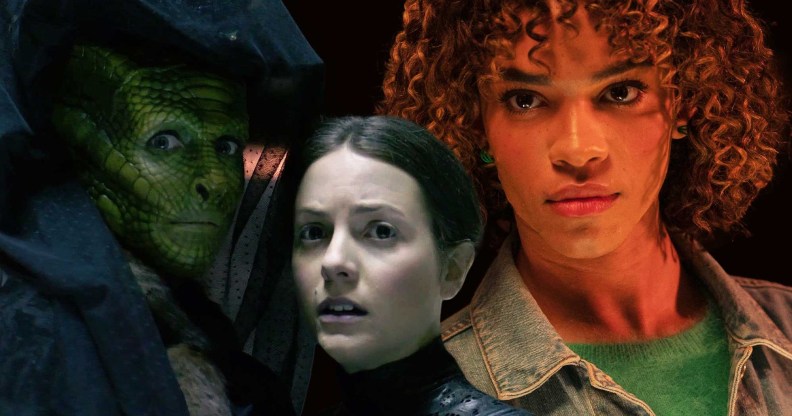
7 queerest moments in Doctor Who. (BBC)
Doctor Who is back, and once more delivering iconic LGBTQ+ representation. Now, here is and our list of the best queer moments in the show’s recent history – from trailblazing to outrageously camp.
Since its launch in 1963, the landmark British sci-fi series has cultivated a devout queer fan base, who avidly follow the adventures of the gender-bending Time Lord known as The Doctor.
The queer fandom has only grown since Queer as Folk creator Russell T Davies rebooted the show in 2005, featuring out and proud queer characters and plots ever since.
This legacy is set to continue as we enter a new era, once more under Davies’ guiding hand. New episodes promise standout performances from trans stars such as Yasmin Finney (Heartstopper) and drag legend Jinkx Monsoon.
The show will also showcase some of the biggest queer talent in the industry today, from Jonathan Groff and Neil Patrick Harris to Sex Education star Ncuti Gatwa, who takes over the Tardis in December as the 15th Doctor.
As LGBTQ+ fans gear up for the upcoming run of episodes, PinkNews has rounded up just some of the most memorable LGBTQ+ moments from New Who so far.
Donna Noble proving herself the ultimate trans ally
After months of hype, the first of Doctor Who‘s 60th anniversary specials, “The Star Beast”, finally aired on BBC One on Saturday (25 November), to widespread praise – and a predictable right-wing backlash.
The episode saw the return of David Tennant and Catherine Tate as the Doctor and companion Donna Noble as they slipped effortlessly back into their familiar chaotic dynamic.
Most notably, the audience was introduced to Rose Noble, Donna’s “beautiful” trans daughter who soon got swept up into extra-terrestrial shenanigans after accidentally taking the adorable – but conniving – alien, the Meep (Miriam Margolyes), under her wing.
It was difficult to pick just one moment that summed up the brilliant trans representation but coming in as the winner has to be Donna’s impassioned speech supporting Rose after she is subjected to transphobic bullying on their walk home.
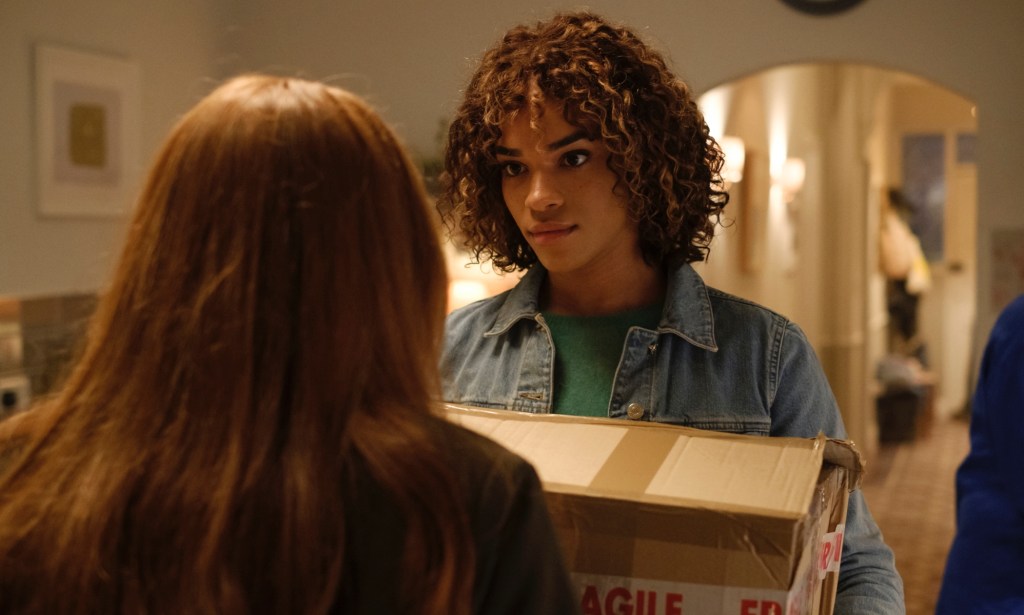
“I would burn down the world for you, darling,” Donna told Rose. “Anyone has a go, I will be there and I will descend.”
The moment was made all the more important when it turned out to be Rose’s trans identity that saved the day – and she is finally able to live her truth.
“After all these years, I’m finally me,” she states emotionally states towards the end of the special.
Captain Jack Harkness kissing the Doctor and Rose in ‘The Parting of the Ways’
Now let’s take it back to the very beginning. In 2005, season one came to a dramatic conclusion as fans bade farewell to the fantastic ninth Doctor, played by Christopher Eccleston, in a finale titled “The Parting of the Ways.”
Needless to say, there was very little LGBTQ+ representation on Saturday night family friendly TV in the mid-2000s. But that all changed when Davies introduced recurring queer character Captain Jack Harkness, played by John Barrowman – best known then as a star of theatrical musicals.
After joining the Doctor and Rose (Billie Piper) on a number of world-saving escapades, he went to face his death, going up against the Doctor’s arch-enemies: the Daleks.
But before his departure, he gave one last kiss not only to Rose but also to the Doctor – pushing the envelope on the portrayal of same-sex affection in mainstream television.
This small moment for queer representation aired during the infancy of the reboot. Captain Jack went on to feature in his own adult spin-off series Torchwood, which featured a poignant romance between him and Ianto Jones (Gareth David-Lloyd).
Alice and May Cassini, the first of many lesbian duos
Doctor Who‘s season three episode “Gridlock” is praised for its claustrophobic, against-the-clock, plot which sees the Doctor racing across a seemingly never-ending polluted motorway to save Martha (Freema Agyeman) from certain death.
Along the way, he encounters various car-occupying characters, including Alice and May Cassini, the motorway’s resident car-spotters.
And the show makes their relationship status crystal clear when we see the pair shoot down another character who attempts to call them sisters. “You know full well we’re not sisters, we’re married,” Alice quips.
Honestly, a mic drop moment, and for many younger fans, the first elder sapphic relationship they may have seen on screen.
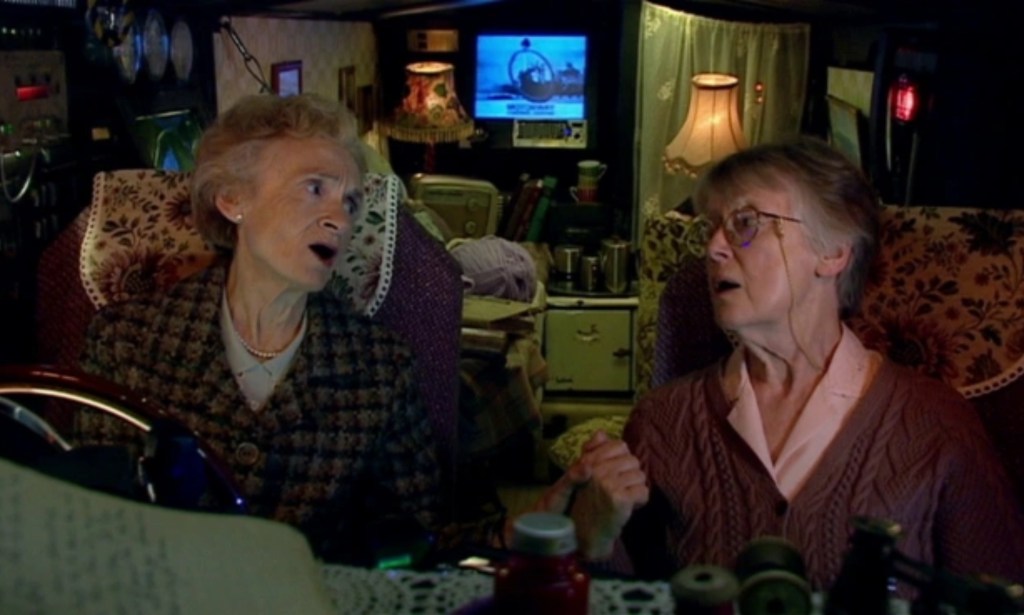
The Cassinis joined the growing list of smaller LGBTQ+ characters dotted throughout the series.
These include gay US operative Canton Delaware in season six opener “The Impossible Astronaut” (who comes out to President Nixon), the good-natured husbands in “A Good Man Goes to War” in the same season, and, four years later, rescue crew member 474, played by trans actor Bethany Black, in “Sleep No More”.
Crime-solving Victorian duo Madam Vastra and Jenny
One of the more prominent side characters during Steven Moffat’s time as showrunner were the badass lesbian duo, Silurian Madame Vastra (Neve McIntosh) and her assistant Jenny (Catrin Stewart).
The pair occasionally joined Matt Smith’s 11th and Peter Capaldi’s 12th Doctors to help save the world from alien threats, and provide moments of lesbian representation during their time on screen.
Their most heart-warming scenes undoubtedly feature in Capaldi’s debut episode “Deep Breath”.
The season eight episode features several tender moments including Jenny’s proclamation of love for Vastra.
“If Vastra changed, if she was different, if she wasn’t the person you liked?” time-travelling companion Clara (Jenna Coleman) – still trying to process the Doctor’s regeneration – asked Jenny.
To which came the reply: “I don’t like her, ma’am, I love her. And as to different, well, she’s a lizard.”
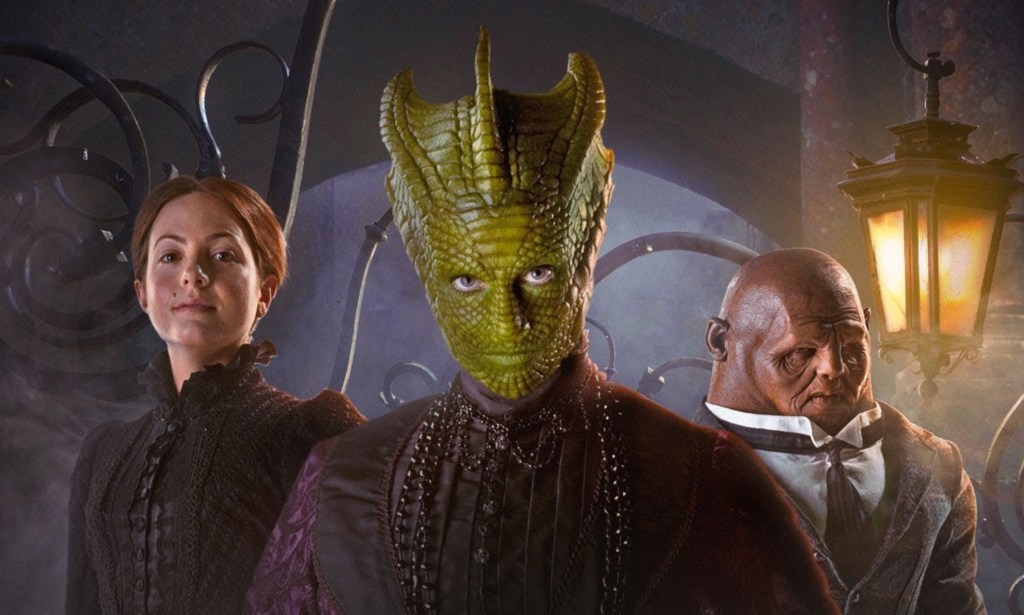
Their final televised episode was made all the more iconic when they share a life-saving kiss.
Although some haters complained to Ofcom about the moment, the media regulator responded by saying its “rules do not discriminate between scenes involving opposite-sex and same-sex couples.”
Bill Potts and Heather bucking the ‘bury your gays’ trope
The 12th Doctor’s companion Bill Potts (Pearl Mackie) made history as the first openly gay full-time companion to travel in the Tardis. The season had a tender romance arc for her as she fell in love with university student Heather.
Given that this was Doctor Who, Heather turned into a sentient oil in the first episode and offered to travel with Bill across the universe – an offer she turns down. In the season finale “The Doctor Falls”, Bill is killed and “upgraded” into a Cyberman (a tragic fate for any human).
And here we come to the gorgeous moment of queer joy. In a romantic twist, Heather reappeared and saved Bill from her fate. The season ended with the couple holding hands ready to explore the universe together.
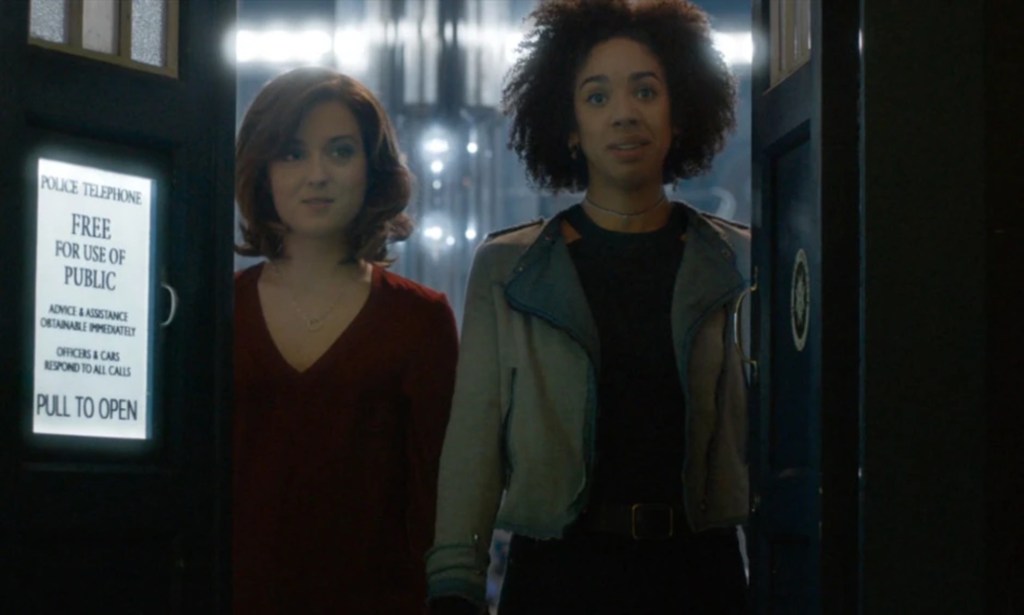
It was another big win for lesbians.
The Master – a true camp icon
Once a camp icon, always a camp icon. For no one is this truer than the renegade Time Lord known as The Master, who regularly clashes with his fellow Gallifreyan.
Every Time Lord is queer given their genderfluid regeneration abilities, and it was The Master who paved the way after regenerating from John Simm’s nihilistic villain to Michelle Gomez’s brilliantly mad Missy.
After Simm’s larger-than-life portrayal (which included him coming out as a Teletubbies lover), Gomez stepped into his shoes in magnificent style with her bold eye makeup and scandalous demeanour. However, the crowning moment must go to Sacha Dhawan, who played the Master opposite Jodie Whittaker’s 13th Doctor.
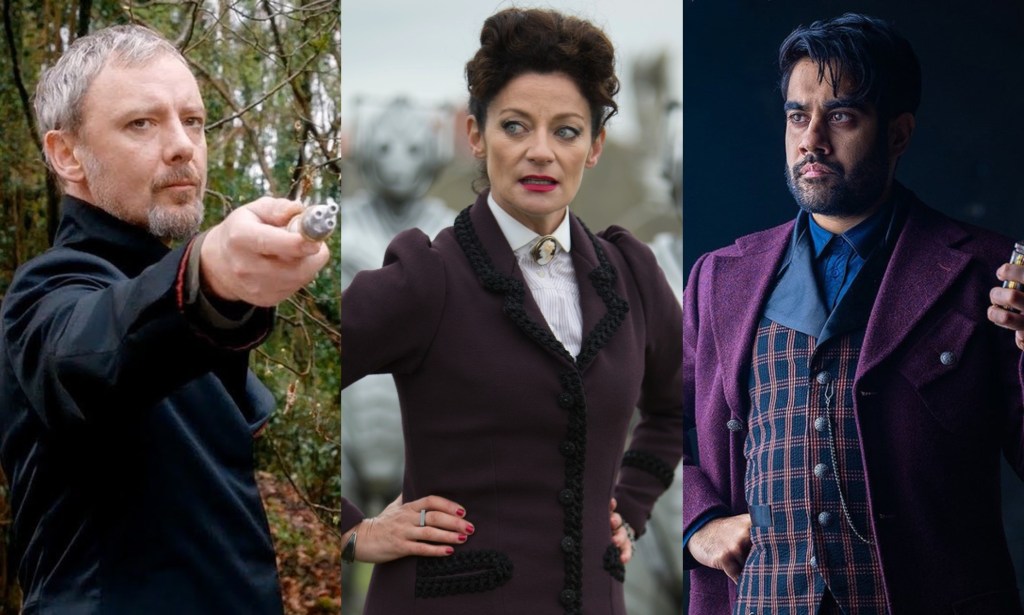
In the 2022 special, “The Power of the Doctor”, Dhawan delivered several memorable moments, including his deranged dance to Boney M’s “Ra Ra Rasputin” and effortlessly stepping into Whittaker’s outfit when he assumed her body as part of his evil grand plan.
Talking about the filming process to Radio Times, Dhawan said: “Your adrenaline’s going already and I just thought to myself, ‘I don’t think I’ll ever be in this position again, where I am dressed as Rasputin, doing something like this, so the camera’s rolling, just go for it, see what happens’.
“And, yeah, I went for it. It was just so cool.”
Luke Smith finding his true love, Sanjay
This is a sneaky addition given that it focuses on characters from the Doctor Who spin-off series The Sarah Jane Adventures. The show followed the on-earth adventures of classic-era Who companion Sarah Jane (Elisabeth Sladen, who returned in the much-loved Tennant episode “School Reunion” ) and her teen companions Clyde (Daniel Anthony), Rani (Anjli Mohindra) and alien son Luke Smith (Tommy Knight).
Although the series was cut short following Sladen’s death in 2011, Davies later confirmed plans to have Luke come out as gay and enter into a relationship with university pal Sanjay.
Luckily for long-time fans we got a glimpse into Luke’s happily married future in the 2020 Doctor Who YouTube short, Farewell, Sarah Jane.
During the 13-minute special, Knight reprised his role as Luke and spoke about Sarah Jane helping him realise his feelings for Sanjay, and confirmed the pair have been married for five years.
The Doctor Who collection is available to stream on BBC iPlayer.
How did this story make you feel?
